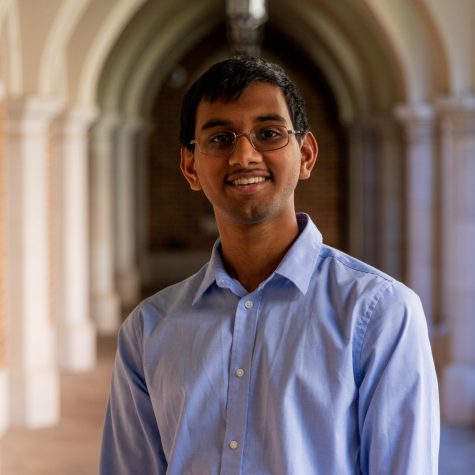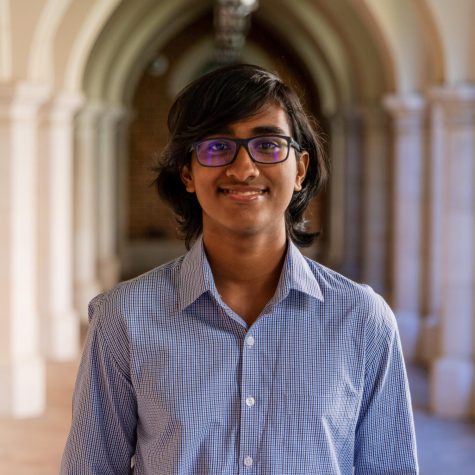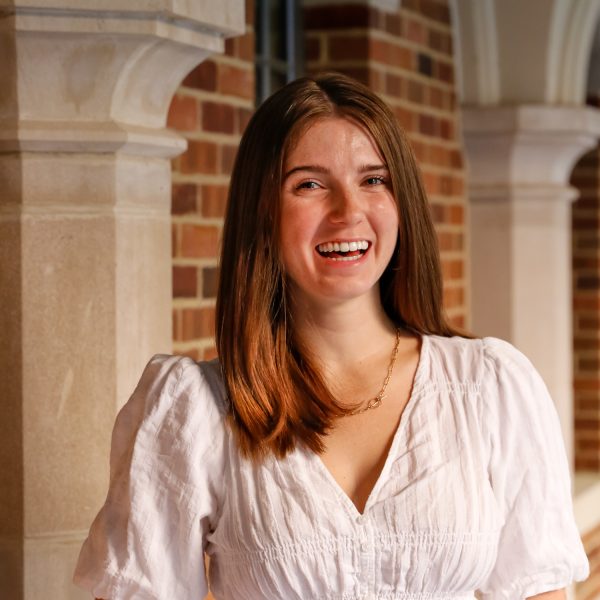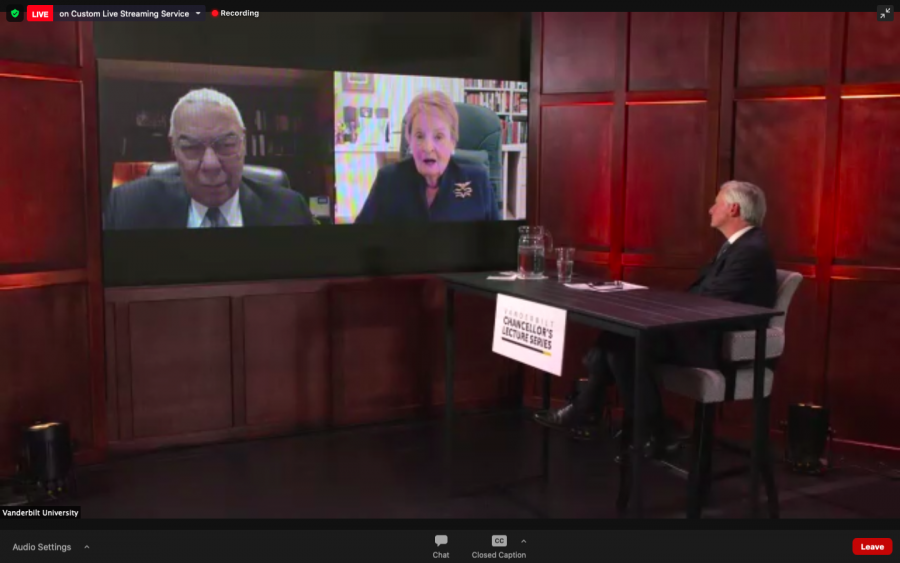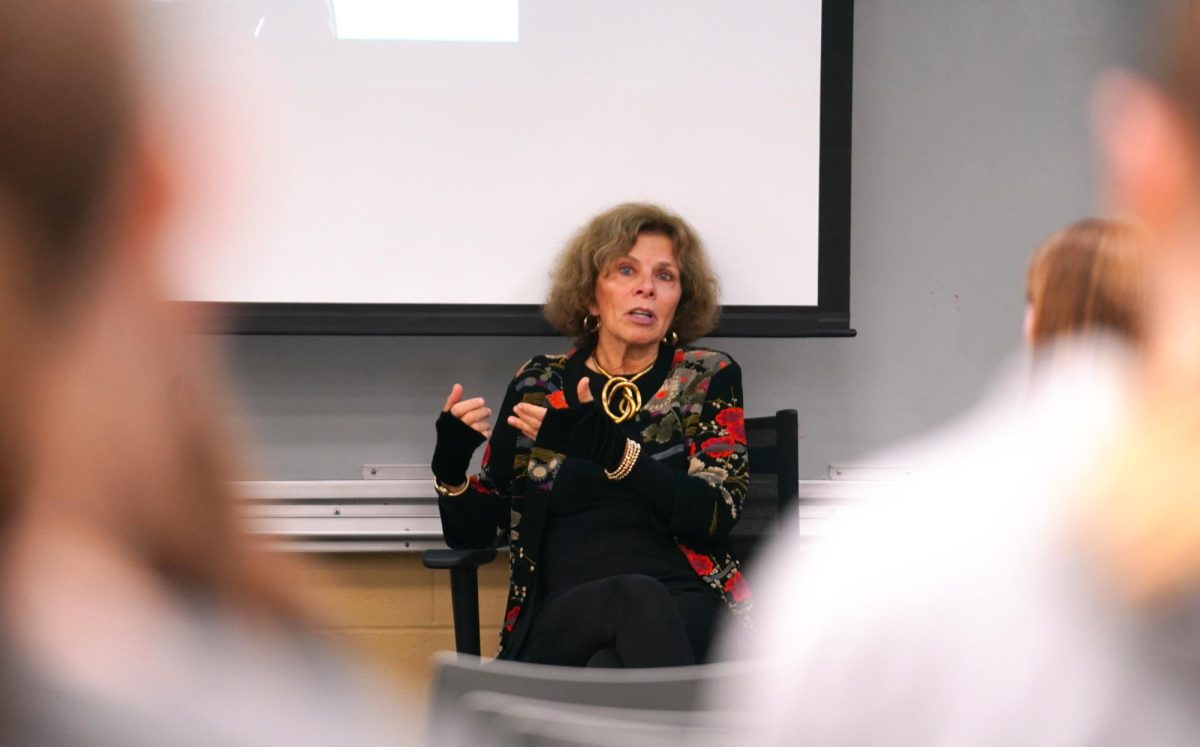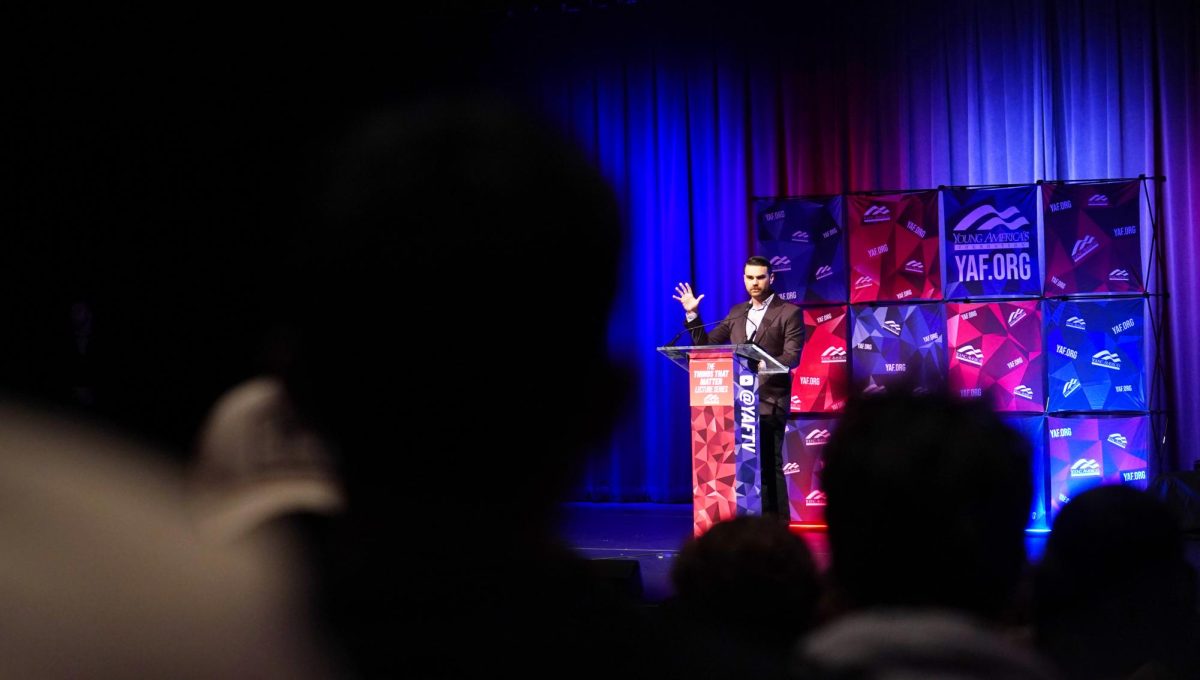Vanderbilt hosted Commissioner Nury Turkel, the first American-educated Uyghur lawyer who serves as the chair of the United States Commission on International Religious Freedom and chair of the Uyghur Human Rights Project. Turkel discussed the Uyghur minority, a mostly Muslim demographic who live in the Xinjiang region of China and face religious persecution, followed by a Q&A with audience members.
The event, moderated by Michael Newton, professor of the practice of law and political science, was hosted on Feb. 20 by the Vanderbilt Alexander Hamilton Society and co-sponsored by Vanderbilt Libraries, Department of Religious Studies and the Undergraduate Political Science Association. Approximately 60 students were in attendance.
Turkel, who is a member of the Uyghur community, said he was born in a detention camp in 1970 during the Chinese Cultural Revolution to parents who were also imprisoned at the time. He stated that roughly 2-3 million Uyghurs, including children, have been detained in camps where they face physical and sexual violence, torture and forced sterilization as a result of their religious beliefs.
“Religious ideologies are incompatible with Chinese Communist beliefs. Xi Jinping endorses the ‘Number Nine Document’ which calls for a final solution for the Xinjiang problem,” Turkel said. “Not only is it physical and mental abuse, but they indoctrinate the Uyghurs by forcing them to renounce their religious identities.”
Turkel explained that life will never be the same for Uyghurs following this torture.
“The people who have been taken to the camp are gone; they will never be able to return to a normal life,” Turkel said. “The world hasn’t seen anything like this since the Holocaust. The Uyghurs are paying the ultimate price, and the damage that they [imparted upon] my life and the lives of others can never be repaired.”
He added that Uyghurs are subjected to forced labor which has become integral to global supply chains and expressed his support for the Xinjiang Forced Labor Bill. This legislation would ban companies from importing goods made from Uyghur-forced labor into America. Turkel stated that the U.S. and the rest of the international community need to take a stronger stand against China.
“The U.S. Chamber of Commerce publicly opposed [the Xinjiang Forced Labor Bill]. Apple and the rest of Silicon Valley lobbied against the government as well. Corporate America is normalizing China’s repression of the Uyghurs,” Turkel said. “This is morally impermissible.”
Turkel stated that it can be difficult for the international community to accuse a country of committing genocide, but that the label is necessary for this situation to raise awareness and concern.
“We live in an age of impunity where atrocities go unpunished. If you don’t hold those accountable for the crimes they commit, they [victims] will continue to suffer,” Turkel said. “Accountability is deterrence.”
Turkel advised consumers — including the crowd of students — to be more conscious about buying goods made in China, as this awareness can be instrumental in dismantling the incentives for companies utilizing Uyghur forced labor.
“We need to use the power of consumers because investors and shareholders pay attention to public opinion and China does too,” Turkel said.
Newton concluded the event by stating that, while it may seem difficult to hold China accountable, it is crucial to protect Uyghurs.
“We are often afraid to take bold action,” Newton said. “[The Chinese government] can’t turn the page and just whitewash history. You can’t erase the collective suffering of the Uyghurs.”
Katherine Carroll, associate director of the Department of Public Policy Studies and associate professor in political science, attended the event and reflected on the role that individuals in the U.S. have in protesting human rights abuses by boycotting products made from forced Uyghur labor.
“I left Nury Turkel’s talk with a heavy feeling of responsibility about my personal habits of consumption and how they may impact the survival of the Uyghurs. This tie between our everyday lives and a major issue of foreign policy is unusual, or it is unusual to have it so starkly pointed out,” Carroll said. “I vowed to be much more careful about where the goods I buy come from.”
Sophomore and event organizer Zacarias Negron said he hopes the event will generate advocacy on behalf of Uyghur Muslims.
“I am so grateful we were able to have this event,” Negron said. “I think it’s a historic moment at Vanderbilt to have the chief advocate of the Uyghur cause speak [to us]. The one major thing I hope comes out of this event is that people leave with the impetus to create change with regard to the Uyghur people and all oppressed people in the world.”
Junior Collins Agyeman, who attended the event, added that it is important to raise awareness about the Uyghur genocide to generate support for its victims.
“I think it is incredible that we get to hear a voice of a people who are essentially voiceless,” Agyeman said. “I think the vast majority of people in the United States should be aware of issues like this especially in terms of genocide and statelessness because these people need us to intervene since we have the power and influence.”




